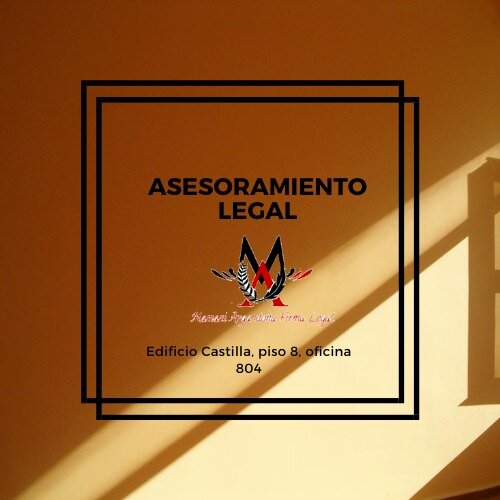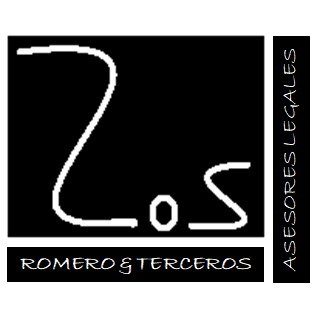Best Project Finance Lawyers in La Paz
Share your needs with us, get contacted by law firms.
Free. Takes 2 min.
List of the best lawyers in La Paz, Bolivia
About Project Finance Law in La Paz, Bolivia
Project finance law in La Paz, Bolivia deals with the legal, contractual, and fiduciary environment surrounding long-term infrastructure or industrial projects. Usually, these projects are financed with a blend of equity and non-recourse or limited recourse loans, which are repaid from the cash flow generated by the project itself. Common sectors that use project finance in La Paz include energy, mining, transportation, and public infrastructure.
In Bolivia, including La Paz, the government often partners with private entities for major projects through Public-Private Partnerships, build-operate-transfer contracts, and concession agreements. Project finance lawyers play a key role in structuring deals so that both public and private interests are protected under Bolivian law.
Why You May Need a Lawyer
Legal assistance is critical during project finance transactions because of the complexity, size, and long-term nature of these projects. Here are some common situations in La Paz where you might need a project finance lawyer:
- Negotiating concession agreements or public-private partnership contracts with government agencies
- Drafting complex loan agreements with local or international lenders
- Structuring collateral arrangements acceptable under Bolivian law
- Navigating local regulatory and permitting requirements
- Assessing environmental and social impact compliance
- Resolving disputes between project stakeholders
- Ensuring compliance with currency exchange controls and tax regulations
Local Laws Overview
Project finance in La Paz, Bolivia is influenced by national legal frameworks and local administrative rules. The most relevant aspects include:
- Concession and Public-Private Partnership Laws: Bolivian law provides regulations for public sector entities to partner with private companies for public works and utilities. The procedure and requirements are detailed in specific laws and secondary regulations depending on the sector.
- Security Interests: Security interests (guarantees, pledges, mortgages) must comply with the Bolivian Civil Code. The registration of these rights is usually required for the enforceability of collateral arrangements.
- Taxation: Tax incentives and regimes apply to certain infrastructure investments. However, strict rules govern profit repatriation and deductibility of interest.
- Foreign Investment: Bolivia allows foreign participation, but some sectors require specific approvals or are subject to limitations. Exchange controls impact the repatriation of funds and foreign debt service.
- Environmental and Social Regulation: Large projects must obtain environmental licenses from municipal or national authorities and comply with consultation requirements with affected communities, especially indigenous populations.
Local counsel in La Paz will help interpret these rules in the context of each project, handle filings, and ensure ongoing compliance.
Frequently Asked Questions
What is project finance and how does it differ from standard corporate borrowing?
Project finance involves borrowing money specifically for a project's construction, operation, or expansion, where repayment relies on the project's cash flow, not on the overall credit of the borrowing company. Unlike regular loans, lenders mainly assess project viability and revenue streams.
Which kinds of projects in La Paz typically use project finance structures?
Common examples include mining operations, power plants, water supply and treatment projects, road construction, telecommunication infrastructure, and large industrial facilities.
What government approvals are usually needed for project finance transactions in La Paz?
Depending on the sector, approvals may involve municipal or national authorities for environmental licensing, construction permits, sectoral concessions, and foreign investment registration.
Can foreign companies participate in project finance deals in La Paz?
Yes, foreign investors often participate in these projects, but they must comply with local investment registration, observe sector-specific restrictions, and may be subject to approval by regulatory authorities.
Are loans in project finance structures typically secured under Bolivian law?
Yes, lenders typically require collateral, such as pledges over project assets, mortgages, or assignment of future project cash flow. These arrangements must be properly registered with local authorities.
What taxes apply to project finance transactions in Bolivia?
Applicable taxes include value-added tax (IVA), corporate income tax, transaction taxes, and occasionally sector-specific levies. Special tax incentives may be available for strategic projects.
How are disputes in project finance arrangements resolved in Bolivia?
Disputes may be resolved through negotiation, local court proceedings, or arbitration. Many large contracts specify international arbitration venues, but local law and courts may still play a role for enforcement.
What happens if the project cannot generate enough revenue to repay loans?
If the project fails to perform, lenders may enforce their security interests and take over the project assets, subject to any limitations in the financing agreements and local law.
Are there special requirements for environmental or social impact in La Paz?
Yes, significant projects must obtain an environmental license and may have to consult with indigenous or local communities. Failure to comply can delay or halt a project.
Do project finance transactions need to be registered with government bodies?
Yes, aspects such as security interests, concession rights, and sometimes the finance agreements themselves, require registration with relevant Bolivian registries for validity and enforceability.
Additional Resources
For further information, individuals or companies can consult:
- Ministry of Public Works, Services and Housing (Ministerio de Obras Públicas, Servicios y Vivienda): Supervises infrastructure projects, public concessions, and project permits.
- Bolivian Institute of Foreign Trade (IBCE): Provides guidance on foreign investment and trade matters related to project finance.
- La Paz Municipal Government: Issues certain construction and operational permits for projects located within La Paz.
- Bolivian Chamber of Construction (CABOCO): Offers resources about local construction laws and project standards.
- Local law firms with project finance divisions: Many prominent legal offices in La Paz offer specialized teams for international and local project finance transactions.
Next Steps
If you are considering or involved in a project finance transaction in La Paz, Bolivia, here are the recommended next steps:
- Identify the type and scope of your project, and the legal areas it may touch, such as permits, taxes, and land rights.
- Consult with a local lawyer experienced in project finance to evaluate your project's structure and compliance needs.
- Prepare necessary documents, including business plans, technical studies, and preliminary contracts.
- Work with your lawyer to assess risk, negotiate terms, and ensure proper registration of all agreements and guarantees.
- Maintain ongoing communication with authorities to keep your project in good standing through its lifespan.
Early and continuous legal advice can help avoid delays, additional costs, or legal disputes as your project develops in La Paz.
Lawzana helps you find the best lawyers and law firms in La Paz through a curated and pre-screened list of qualified legal professionals. Our platform offers rankings and detailed profiles of attorneys and law firms, allowing you to compare based on practice areas, including Project Finance, experience, and client feedback.
Each profile includes a description of the firm's areas of practice, client reviews, team members and partners, year of establishment, spoken languages, office locations, contact information, social media presence, and any published articles or resources. Most firms on our platform speak English and are experienced in both local and international legal matters.
Get a quote from top-rated law firms in La Paz, Bolivia — quickly, securely, and without unnecessary hassle.
Disclaimer:
The information provided on this page is for general informational purposes only and does not constitute legal advice. While we strive to ensure the accuracy and relevance of the content, legal information may change over time, and interpretations of the law can vary. You should always consult with a qualified legal professional for advice specific to your situation.
We disclaim all liability for actions taken or not taken based on the content of this page. If you believe any information is incorrect or outdated, please contact us, and we will review and update it where appropriate.










